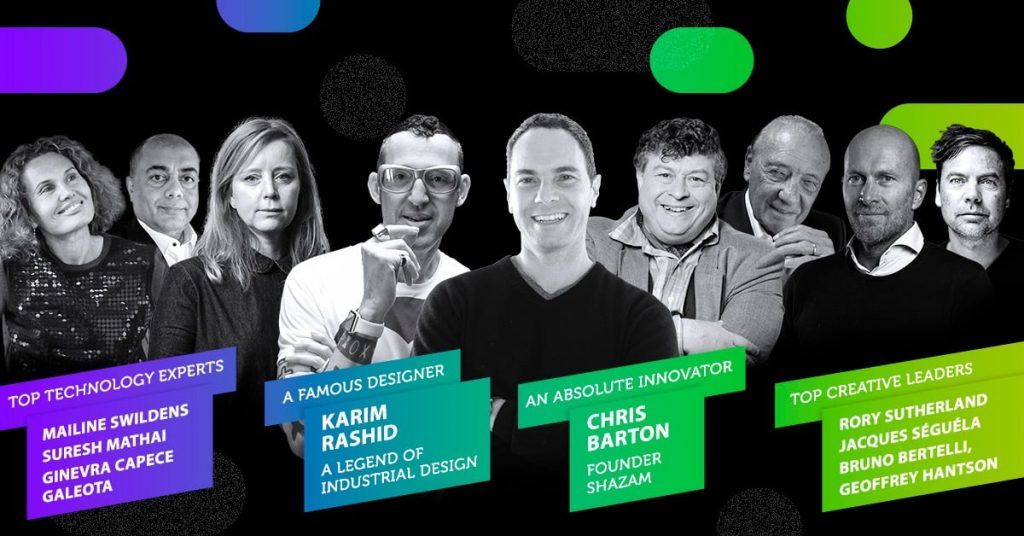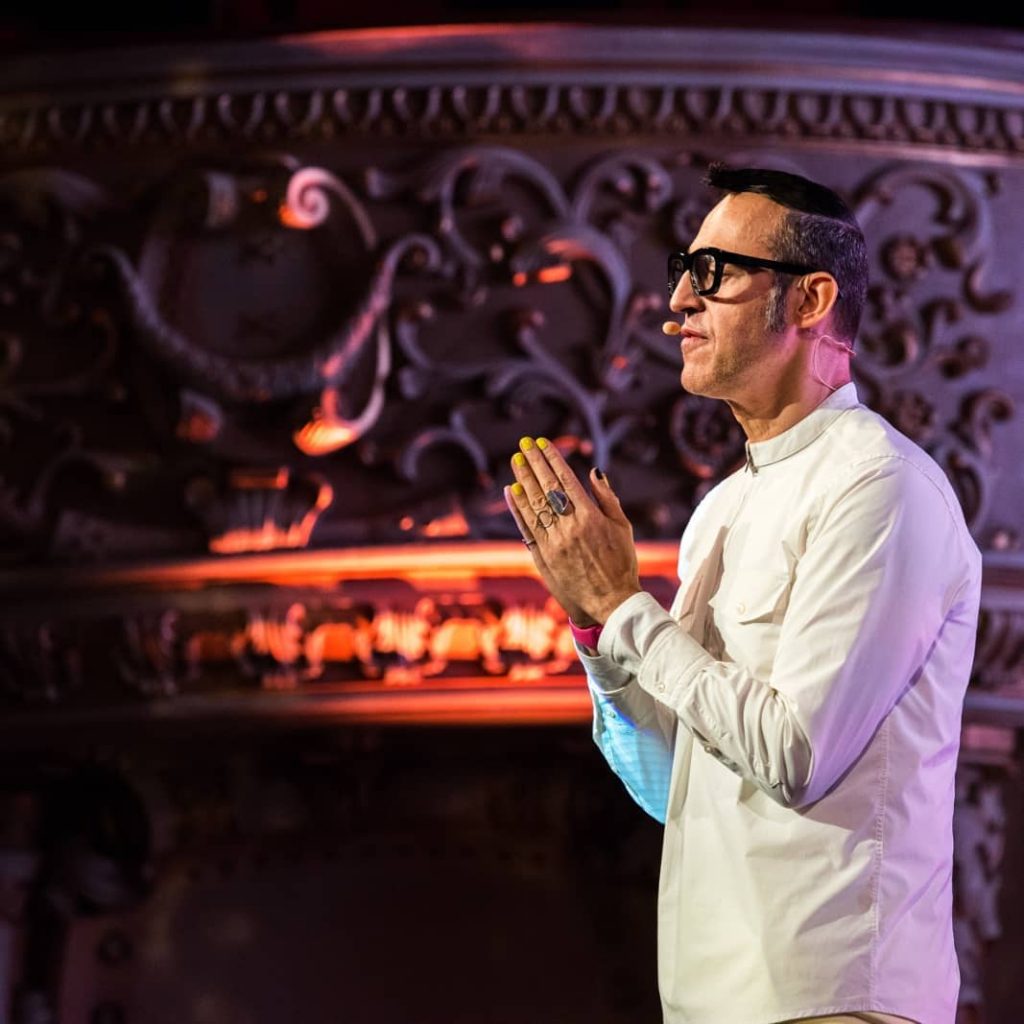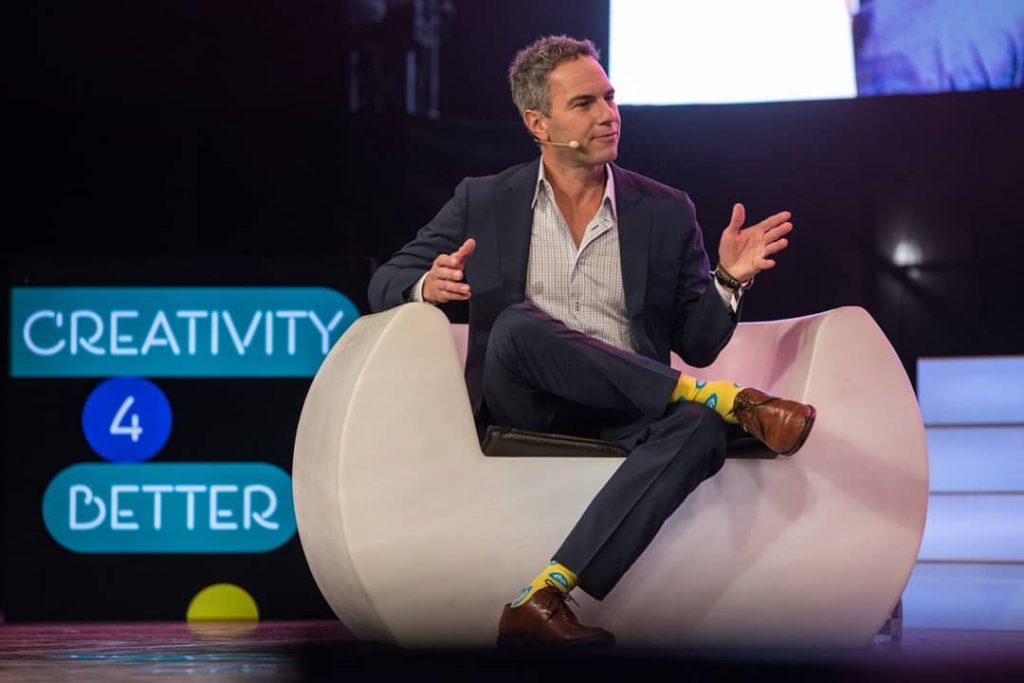Have you looked back at how your year unfolds to see if you can find a pattern in terms of dynamics?
Did you notice any particular sequence that takes up more of your resources? (Besides the usual summer and winter vacations.)
I’ve been doing this for the better part of the last decade because – after a few burnouts – I needed to figure out how to manage my energy throughout the year so I don’t revert to the same pattern.
It immediately became clear to me that the richest part of the year in terms of experiences was October-November. It’s also the most demanding time of the year, a challenge I eagerly await and prepare for, both mentally and physically.
Why are these months so intense, you ask?
Because I usually attend or work for three conferences (DefCamp, GPeC Summit, and How to Web). And then there are the unexpected opportunities that pop up, giving the chance to explore new avenues for inspiration and reflection.
Such an opportunity was the invitation I got to attend the IAA Global Conference in Bucharest this past October.
👀 Take a peek at the jazzy stage of our October @IAA_Global Conference #Creativity4Better hosted in Bucharest, Romania 🇷🇴 pic.twitter.com/y10t8J92vV
— IAA Global (@IAA_Global) November 7, 2019
What made this event particularly valuable and intriguing was the line-up of speakers comprising of some of the most bold thinkers and creators across disciplines such as advertising, design, and tech.
Throughout the event, I felt deeply connected to the speakers on stage, who really gave their best and shared insights generously.
Their stories – rich in nuance – centered around the deeply human nature of creativity and the transformations it’s undergoing.
This is an essential topic not just for any communication professional (myself included) but for anyone who wants to build a business that can stand the test of time. Advertising, marketing, design, tech innovation – no matter the industry, creativity is an indispensable element of the human experience.
The challenge today is to retain this elusive ability to capture and materialize creativity in a world that’s increasingly driven by data.
Here are some of the key takeaways that have stayed with weeks after the event, inspiring me to ponder on my role in cultivating creativity as an important part of my role.
“Claim imperfection”
BRUNO BERTELLI, a world-class creative with an impressive list of achievements, talked about differentiation and creativity in a me-too market where brands tend to follow the same formulas.
With his team at Publicis Worldwide, Bruno aims to make people around the world by surprise. giving them new ways to see things.
You may recall their 2017 award-winning Diesel campaign, Go With The Flaw, where they challenged long-held beliefs about perfection in fashion:
This ad campaign clicked with generations of people who crave diversity, representation, and freedom of expression, paving the way for a new communication platform for the fashion brand.
Last year, they took it a step further, opening a knock-off store with real Diesel items that had just a little flaw on the label:
It’s new ways to look at the world like this that make my mind connect the dots in different ways and it’s the work of people like Bruno that remind the world how desperately we need creativity to live a rich, rewarding life.
“We must be careful not to become numbers and lose our humanity”
The star guest JACQUES SÉGUÉLA was a mind-blowing presence on stage at the IAA Global Conference in Bucharest.
At 85 years old, Mr. Séguéla is a living legend. He has used his particular set of skills and the wisdom he cultivated to reach the pinnacle of performance in journalism, advertising, TV production, and book publishing, amonth many others.
When I was just 1 year old (and people still loved advertising), Mr. Séguéla was crafting fantastic advertising campaigns like this one:
Imagine the magnitude of this production! It was almost unheard of at the time, something we might forget now that we drone and VR everything (and often come up with nothing that makes a lasting impact).
The incredible Mr. Séguéla cautioned against letting our creativity be guided exclusively by data:
“We must be careful not to become numbers and lose our humanity.”
He also reminded us that “courage is the driving force of creativity” and to never underestimate the power of a great story, as one of his ads highlights:
“Technology must remain a tool!” is the reminder he passionately uttered on stage.
What made me take this reminder to heart more than usual was the example Mr. Séguéla set by living a rich life and enriching others’ through his work.
For example, at 45, he published his first book about his career: “Do not tell my mother that I am working in advertising, she thinks I am a pianist in a brothel.” I’m super excited to get my hands on it!
If you’re curious to learn more about this fascinating human, you’re in luck! The IAA conference organizers published the Mr. Séguéla’s full talk:
“AI is reducing our participation to the creative process”
As you can tell by now, there was no shortage of impressive speakers at this event but one made a big impact on me in a way I didn’t expect.
I’d read KARIM RASHID‘s book, Design Your Self: Rethinking the Way You Live, Love, Work, and Play, a few years back and I remember a few key ideas stuck with me.
Meeting authors of books I deeply enjoyed is one of the experiences I most appreciate in life. It feels almost like an out-of-body experience because of how unlikely it is for something like to happen.
So when I was presented with the opportunity to attend a press briefing with Karim Rashid, you best believe I didn’t waste it!
What struck me about him was his incredible openness, his ability to be present, to connect on a deeper, human level, and to be vulnerable in a foreign setting, with people he’d never met before.
His outlandish style intimidated me but as soon as he started talking I understood that there’s no wall, no distance between him and us. There is not a carefully built persona. Karim Rashid is an authentic, candid human being eager to experience every moment and contribute to making it memorable.
During the press briefing, we got to ask him a few questions and the answers we got exceeded any expectation!
You expect someone like Karim Rashid to hold contrarian views about trends that tend to breed uniformity but his comments on them came from a place of curiosity and honest desire to improve, not from a place of negativity.
I found it interesting to see how aesthetic trends (in fashion, photography, design, etc.) encourage uniformity because they’re amplified and distributed incredibly fast by the digital world. Just take a look at your Instagram feed and you’ll notice what I mean.
“But this is not the first time in history this is happening”, you might argue. Correct!
Karim Rashid exemplified what internationalism in design means by point to the Bauhaus buildings in Tel Aviv, showing how far from Germany the design movement had travelled in the early 1900s.
In this context, the visionary designer emphasized the dire need for differentiation that brands acutely experience.
As humans, we crave diversity. And, for a long time, we’ve had plenty of it.
“Just think about tourism”, Karim Rashid urged our little group.
“Nature differentiates in tourism. Architecture differentiates up to a point. Music used to differentiate.”
He continued to show how these elements – with the exception of nature – are beginning to lose their uniqueness as popular trends encourages me too behaviors.
As a content creator, this prompted me to pay closer attention to the type of work I create and it also gave me the courage to be a bit bolder in my approach.
Since this is such an important interest of mine, I had to ask Karim Rashid about his decision-making process. He said intuition is the red thread that connects his choices because it encompasses all of his experience.
“You need to follow your intuition and allow the subconscious to breathe through.”
He also mentioned something that we need to become increasingly aware of:
“AI is reducing our participation in the creative process.”
Mind you, creative luminaries like Karim Rashid are not against technology. Their critical thinking process is something to learn from because they see the far-reaching implications of day to day actions in a way that allows them to peer into potential futures.
In my view, these are great opportunities to explore various options ourselves and make an effort to see what our current decisions might amount to. This is how we can cultivate creative thinking and there’s never been a better moment in history to do it.
“In the era of the individual, we’re empowered to create as never before.”
Karim Rashid reminded us that society has been pushing the idea of mass for thousands of years. Now there’s a shift towards individualism which brings about changes in many aspects of our lives.
That’s why…
“We need to let go of the past.”
Many of his thoughtful observations were centered around time and I know for a fact that we all skipped a beat when he shared he had battled cancer.
“We live in a temporary world, where we loan everything.”
As a result, the most prized luxury in the world right now is TIME. When we consume, we seek out seamless experiences because we’re hungry for more time to do more, to experience more, to live more, to create more.
Meeting Karim Rashid was an extraordinary opportunity, one that reopened a door I eagerly opened to explore new ways of looking at the world*.
*which I believe is one of the most valuable gifts we can give each other as humans.
“Look at your ideas and question them from different angles”
The day ended with a mind-bending fireside chat between BBC World News Presenter Kasia Madera and co-founder and former Board Director of Shazam CHRIS BARTON.
The following hour was a series of gripping stories about what it took to build one of the most used and loved music apps in the world.
Tapping our phone’s screen to discover the name of a song we really love is such a simple and natural behavior that we don’t even think about the massive, incredible effort it took to build it.
So stick with me while I share a few fascinating details.
When they were building Shazam, there was no search engine or data base to rely on. This was 2001 and Google had been launched in 1998.
To start adding songs to their data base, Shazam partnered with a local records store. A physical record store that is. That meant they had to put i thousands of CDs into the system manually.
To do it, they hired 15-20 18-year olds who worked in 3 shifts to get it done.
The level of creative thinking specific to (some) startups is admirable, on one condition (in my experience): that the passion that drives the team is tied to a bigger goal than making money fast.
Chasing a get-rich-fast scheme was the exact opposite of what they were doing at Shazam, since the company has been 18 years in the making and they struggled for years to bring the product to the level we see it now.
Wasn't it amazing to hear this! 18 year olds working round the clock inputting all those songs! The early @Shazam days sound extraordinary! Chris Barton was fascinating. So pleased you enjoyed our chat. @IAA_Global #creativity4better #creativemindsgettogether https://t.co/D8GchHBUdj
— Kasia Madera (@BBCKasiaMadera) October 18, 2019
Here’s another story that amazed me.
The Shazam team worked with Stanford PHDs to create an algorithm capable of capturing the music and separating it from background noise. Building AI in the in the early ’00s was anything but easy.
The challenge was massive because phones are designed to boost human voices, not surrounding sounds. So a lot of work went into figuring out how to extract the music so it could be matched with an item in the database.
Initially, to use Shazam, you’d call a dedicated number, hold the phone out for 30 seconds, and hang up. Once a match was found, you’d receive an SMS with the songs’s name.
How wild does that sound compared to the experience of using Shazam we know?
If you’re curious to dig deeper, don’t miss the chance to watch the full interview, generously shared by the IAA team:
https://youtu.be/8uLBLUT4HlQ
Because we also had a brief press session with Chris Barton after the IAA Global Conference wrapped up, I asked him how he cultivates focus, given his incredible experience and far-reaching responsibilities. (While involved in developing Shazam, Chris also worked 8 years at Google and at Dropbox, pouring a large part of his earnings into the company.)
Chris mentioned he work with moderated focus. He enjoys working with limited resources – which is how Shazam was built, which allows him to “see other opportunities but avoid chasing the shiny object.”
His advice for startup founders or doers of any type builds on this particular challenge:
“Think of what you can with the least possible amount of money.”
In a world where extremes are framed as the most appealing directions to pursue, wiser, more balanced approaches like Chris’ deserve more visibility and recognition.
5 lessons learned from spending the day learning from these creative luminaries
1. Creativity is highly dependent on your level of self-awareness and the strength of your desire to understand human nature.
2. Creativity requires courage. Courage stems from our search for meaning. Don’t let the effort that goes into dealing with uncertainty discourage you from pursuing your search from meaning and creativity.
3. Following your intuition sometimes leads to the best decisions (a belief I’ve found more than one of my podcast guests have).
4. Cultivate moderated focus to help you see other opportunities but to keep you from constantly chasing the shiny object.
If you get the opportunity to step outside your circle, DO IT
This year’s Global IAA Conference reminded me of the importance of breaking out of my bubble (tech, cybersecurity, startups) to explore world views that upgrade my experience of life.
I can’t wait to see how the IAA team will inspire us in 2020!



